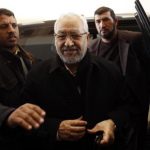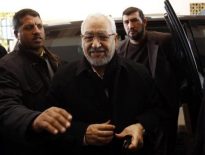(Reuters) – U.N. Secretary-General Ban Ki-moon sought urgently on Monday to nearly double the size of the U.N. peacekeeping force in South Sudan, while rebel leader Riek Machar and President Salva Kiir both indicated they were ready to talk to try to end a deepening conflict that has killed hundreds of people.

A government official, however, said South Sudan would not meet Machar’s demand that detained opposition leaders be released.
Ban asked the U.N. Security Council to send 5,500 more peacekeepers to South Sudan as soon as possible to protect civilians from the growing violence in the world’s newest country. There are now some 6,700 U.N. troops and 670 police officers making up the U.N. force in South Sudan.
The 15-member council met to discuss the crisis and is due to vote on a resolution approving the increase in peacekeeping troops on Tuesday.
“As long as these two individuals are at loggerheads, refusing to sit down with one another, innocent people are being killed on nothing other than ethnic grounds in South Sudan,” said Samantha Power, the U.S. ambassador to the United Nations.
She told reporters that Donald Booth, the U.S. special envoy to South Sudan, had met with the detained South Sudanese opposition leaders whose release Machar was demanding and found them “secure and well and very open to ending the crisis through dialogue and reconciliation.”
Ban told reporters earlier that some 45,000 civilians were seeking protection at U.N. bases in South Sudan.
Booth, who met with Kiir in Juba on Monday, said the president had committed to opening talks with Machar but South Sudan Information Minister Michael Makuei told Reuters there would be no release of detained opposition leaders.
“There is no way we will release anybody who is accused of a coup d’etat,” he said.
Makuei also dismissed claims by Machar, who was South Sudan’s vice president until Kiir dismissed him in July, that his rebels have taken over all the major oil fields in Unity and Upper Nile states as “wishful thinking.”
Hours before meeting Booth, Kiir vowed to attack the town of Bor, the rebel-held capital of Jonglei State, amid deepening fears that the conflict is provoking broader ethnic bloodletting.
“President Kiir committed to me that he was ready to begin talks with Riek Machar to end the crisis without preconditions as soon as his counterpart is willing,” Booth told reporters.
“We notice that the African Union has said there is Christmas season upon us, and called for all parties to cease hostilities. We support that call,” Booth said.
Western powers and east African states, anxious to prevent the fighting from destabilizing a particularly fragile region, have tried to mediate between Machar, who hails from the Nuer tribe, and Kiir, a Dinka.
So far their efforts have been fruitless as clashes which started in Juba on December 15 entered a second week, reaching the country’s vital oil fields and destabilizing a state that won independence from Sudan only in 2011.
Hundreds of people have been killed, with reports of summary executions and ethnically targeted slayings.
Speaking from “the bush,” Machar told Reuters he had spoken to U.S. national security adviser Susan Rice and U.N. envoy Hilde Johnson about trying to end fighting that has killed hundreds of people and driven thousands from their homes.
“My message was let Salva Kiir release my comrades who are under detention and let them be evacuated to Addis Ababa and we can start dialogue straightaway, because these are the people who would (handle) dialogue,” he said by telephone.
Among those Machar listed should be released were Pagan Amum, chief negotiator during the recent oil shutdown with Sudan, which hosts the sole oil export pipeline; and Rebecca de Mabior, the widow of former South Sudanese leader John Garang.
“They are criminals who must be brought to the books, so there is no way we can negotiate with (Machar),” Makeui said. “We are only ready to negotiate with him unconditionally.”
He dismissed Machar’s suggestion that the peace talks be held in Ethiopian capital, Addis Ababa, insisting they take place in Juba.
U.N. “NOT LEAVING”
Joe Contreras, the U.N. spokesman in South Sudan, said the United Nations would not leave the country despite the worsening conflict.
“For those elements who are trying to intimidate us or who have attacked us, the message is loud and clear: we are here to serve the people of South Sudan and we are not leaving the country under any circumstances,” Contreras said.
Two Indian peacekeepers and at least 11 Dinka civilians were killed last week in an attack by about 2,000 armed youths from another ethnic group on a U.N. peacekeeping base in Jonglei state.
Both Machar and Kiir have denied opposing claims that they are stoking ethnic tensions in a country boasting many tribes but where the Nuer, and in particular the Dinka, are dominant.
But many of the people seeking shelter inside sprawling U.N. compounds say the conflict is certainly ethnically based.
“We still don’t feel secure, but it is definitely safer here,” said Deng, a man who saw several dead bodies lying face down as he took his frightened family to a U.N. base in Juba.
The United States said it is repositioning its forces in Africa as the U.S. military prepares for the possibility of further evacuations of Americans and other foreign citizens from South Sudan.
Kiir told parliament that government troops were ready to attack Bor, where about 17,000 people were seeking refuge at a U.N. compound. Makuei said government troops also were looking to take back the Unity State capital, Bentiu.
Toby Lanzer, the U.N.’s humanitarian coordinator in South Sudan, said on a recent visit to Bor that many humanitarian compounds there had been looted. “There was a lot of looting, a lot of gunshots and a lot of dead bodies,” he told the BBC.
While Juba remains tense but calm, Contreras said there were reports of fighting between rival Sudan People’s Liberation Army factions about 25 km (15 miles) east of the capital.
(Additional reporting by Aaron Maasho in Juba and Edmund Blair in Nairobi; Writing by Drazen Jorgic and Christopher Wilson; Editing by David Evans, David Brunnstrom and Bill Trott)





